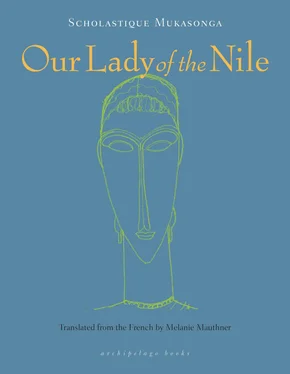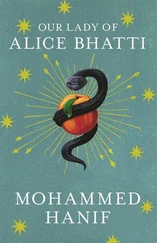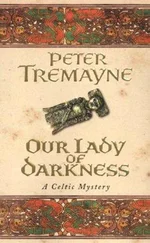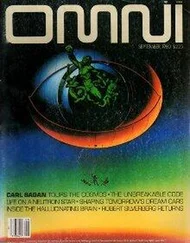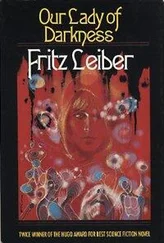“I don’t understand it at all, but you’re my friend, so I trust you. I don’t think you’re out to trick me. Whatever it is must be really important for you to go to Fontenaille’s, but it’s quite mysterious of you! Sunday, you’ll go to Rutare, to those massive rocks, where the jeep will be waiting. I’ll give you a letter for Fontenaille saying that I’m sick and that I’m sending you instead. He’ll be pleased to have his Candace, but still, I don’t understand it at all …”
“I can’t tell you anything, it would bring us both misfortune.”
“It’s my Candace!” cried Monsieur de Fontenaille, seeing Virginia climb out of the jeep clutching her bag to her chest. “I was expecting her, I knew she would come back to me one day. But where is Isis?”
“Veronica is unwell. She’s written you a letter.”
Monsieur de Fontenaille read the letter. Dismay spread across his face.
“Don’t worry,” Virginia reassured him. “Veronica will always be your Isis, she’ll be here next Sunday, and today I will happily be your Queen Candace, but on one condition.”
“On one condition?”
“There’s a real Queen on your estate. You’ve built a pyramid over her remains. I’m scared she won’t put up with seeing another queen here. As you know, we Rwandans are quite fearful of the spirits of the dead: they can turn evil if we offend them. I’m not really a queen, and if Nyiramavugo sees me dressed up as a queen, her spirit will become enraged, she’ll pursue me — and you, too — seeking revenge. So, first I need to make her an offering to reconcile us.”
Monsieur de Fontenaille hesitated for a moment, trying to understand what Virginia meant, what lay behind her words. Then, he seemed overcome with sudden elation.
“Yes, yes, my queen … of course, you must pay homage to the former Queen, to she who lies beneath the pyramid of the Candace queens. And you, whom I saw on the stele at Meroë, you will make whole the chain of time again.”
Monsieur de Fontenaille closed his eyes as if dazzled by the unbearable brilliance of a vision, his hands were shaking. After a long moment that Virginia thought would never end, he became calm again.
“What do you want to do, my Queen? I’ll do everything you tell me to do.”
“It’s just a matter of giving the Queen that which a Rwandan holds most dear: milk. And you have the right milk for a queen: that which comes from inyambo cows.”
Virginia took out the little pot from her bag, as well as the leafy umurembe branch.
“We need to fill up my little milk pot, it’s just the right amount to soothe the queen.”
“Follow me. My shepherds will fill your pot with this morning’s milking, then we’ll climb up to the Queen’s tomb so you can carry out your duties to her.”
“Monsieur de Fontenaille,” said Virginia as he made to enter the funereal grove with her, “please don’t be angry with me, but I must proceed alone into the kigabiro . It’s a forbidden wood. You must have cut down trees, you dug up the earth, uncovered the Queen’s remains, and built your monument on top. You’re a white man, but you’ve violated the kigabiro all the same. I’m afraid that the Queen will refuse my offering if you’re with me. If we annoy the dead, we may have to fear their evil. Perhaps this is of no concern to you whites, but it’s me who’ll receive her vengeance. Please, don’t be angry, I beg you.”
“But of course I’m not angry, Candace. On the contrary, I understand, I respect the rituals. When you get back to the villa, you’ll dress yourself in Queen Candace’s clothes again. I’ll do your portrait. Isis, Candace, the evidence is accumulating. Even if the Tutsi were to disappear, I am the custodian of their legend.”
Virginia slipped between the gnarled trunks of the ancient fig trees, avoiding the clearing where the pyramid stood, trying to find the flame tree in the eerie and closely growing thicket. A thought entered her head: “What if the python is stalking me from within the undergrowth?” She hurried and soon reached the far side of the wood: “Rubanga deceived me,” she said to herself. “He’s just an old charlatan.” But as soon as she got out into the open, she saw a tree standing on its own not far away. It wasn’t covered with red blossoms (she knew it only flowered in the dry season), but she recognized it as the tree she sought from its twisting branches and cracked bark: the flame tree, the umurinzi , the guardian, as it should be called out of respect, the tree the abiru chose long ago to receive the Queen’s umuzimu . She circled it, plunged the umurembe stem into the pot, and sprinkled the umurinzi with milk drops while reciting the words: “Return without thorns, like the umurembe .” When the little pot was empty, she knelt at the foot of the tree and dug a hole with a flat stone, in which she buried the pot and the umurembe branch. When she stood up, she thought she saw the flame tree’s leaves tremble and she felt as if bathed with a serene strength. “From now on,” she thought, “the Queen’s umuzimu will bring me good fortune, I am her favorite, but her favorite in this world.”
As they walked back down to the villa, the servant ran toward them and breathlessly announced:
“Master! Master! There’s a visitor: the old padre, the one with a big beard. He came on his ipikipiki .”
“That old Father Pintard, he still rides that motorbike at his age! He’s back again to convert me to his biblical absurdities. He’ll try to convert you, too. Twenty years, he’s been trying. Don’t listen to him. And don’t forget it was me who told you where you come from, from Meroë, I recognized you as Queen Candace.”
Father Pintard was waiting in the large living room. The little bamboo chair he was sitting on seemed ready to collapse beneath his imposing stature. His white cassock spattered with mud was swathed in chunky rosary beads, like a hunter with his cartridge belts. His long patriarch’s beard made a big impression on Virginia.
“Fontenaille, hello, I see you’re still attracting gullible young ladies to your demonic chapel. If it’s for your perversions, which reassures me a little, then it must be because you’re so well past it that your true favorites are queens from four thousand years ago.”
“Bless me, Father, for I have greatly sinned,” replied Fontenaille, laughing. “This young lady’s name is Virginia, I’m drawing her portrait and you’ll see how much she resembles a queen from two thousand years ago.”
“Dear girl, don’t listen to Fontenaille, listen to me instead, you’re Tutsi I presume, in any case there are only ever Tutsi at Fontenaille’s. When I arrived in Rwanda, almost forty years ago now, people swore by Tutsi and only Tutsi, bishops as much as Belgians. They’d had to change kings, but we were soon to baptize the new one, it was Constantin they wanted. Then the Belgians and bishops turned coats: they swore by Hutu and Hutu only, the doughty democratic farmers, the Lord’s humble sheep. Well, I’ve got no views on the matter, I obey Monsignor, and those young missionaries just fall for everything they’re told about the majority demokarasi . But I’ve spent nearly forty years studying: the Bible on the one hand, the Tutsi on the other. It’s all in the Bible, the story of the Tutsi and everything else.”
“Pintard! Pintard! That’s nonsense! Don’t exhaust us with your ridiculous theories. Virginia doesn’t want to hear it.”
But Father Pintard didn’t want to hear it either. He had launched himself, apparently still addressing Virginia, into an endless monologue, part sermon, part lecture. “Without going as far back as Noah, let’s start with Moses. The Israelites left Egypt, Moses parted the waters of the Red Sea with his staff, but some of them went the wrong way, heading south, and arrived in the land of Kush, these were the first Tutsi, then there was the Queen of Sheba, who was also Tutsi, and she went to visit Solomon and returned home with the child she begat with the great king, and then her son became emperor of a land where the Jews were Tutsi called Falashas,” and at the end of all that, Virginia hadn’t understood why it should finish in Rwanda, where the Tutsi were the real Jews, along with the abiru who knew the secrets of King Solomon’s mines.
Читать дальше
